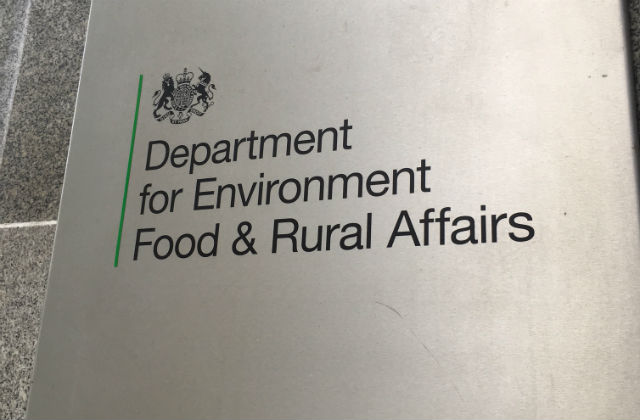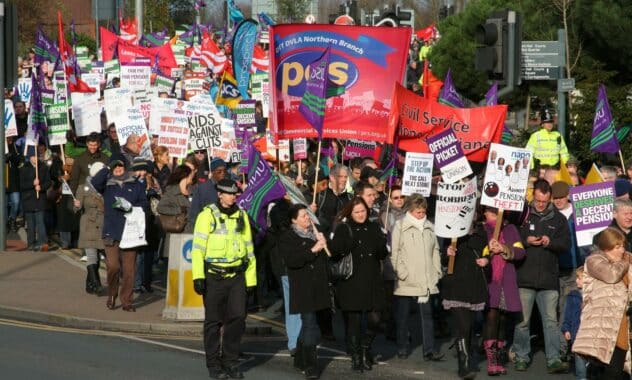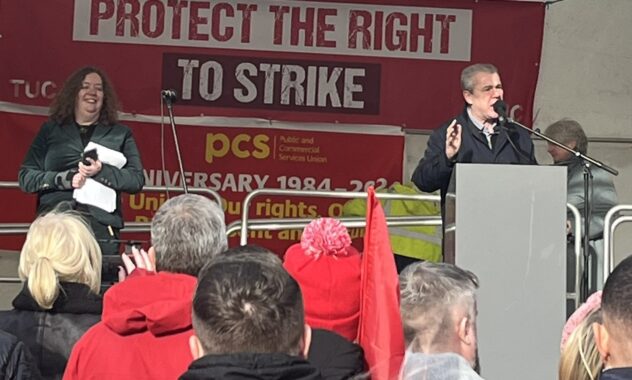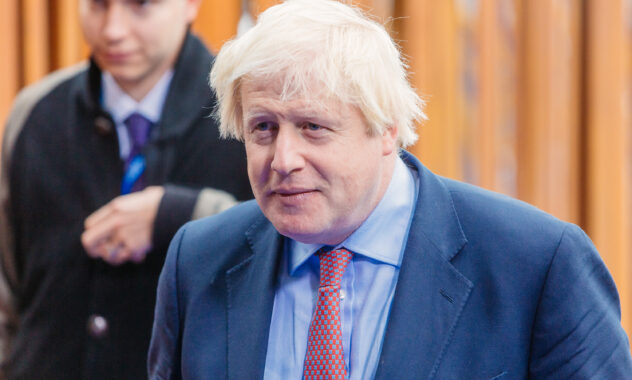Union response to Government’s remarks about public sector pay increasing inflation
PCS responded "unlike the Prime Minister, we weren’t being distracted by cheese. We kept the country running."

The Department for Environment, Food, and Rural Affairs (Defra) has announced a recruitment freeze, with the threat of more than 90,000 job cuts lurking across the public sector.
As reported earlier in the month, the Prime Minister is understood to have tasked the Cabinet with cutting staff by a fifth, telling them every bit of cash saved on government spending could be better used elsewhere.
According to the Guardian, a readout of Tuesday’s cabinet meeting, Ministers “held a discussion on public sector pay,” which would affect government officials, nurses, police, teachers, and NHS workers struggling with the cost of living.
According to Boris Johnson’s official spokesperson at the Cabinet meeting, “the Prime Minister said the public are understandably anxious about global cost of living pressures, and that the government will continue to support those most in need”.
Then added: “The Government has already pledged to increase public sector spending and is awaiting decisions by public sector review bodies. However, ministers made clear that the risk of triggering higher inflation must be part of considerations when deciding pay awards this year.”
The biggest civil service union, the Public and Commercial Services (PCS) union, put an official response to the news:
“This whole government ‘plan’ simply does not stand up to scrutiny. There appears to have been no deep dive review of operations to assess current workloads and look how functions are working to determine if staffing can be reduced in certain areas. More it is just a crude wish to go back to 2016 numbers (before Brexit ever happened)!
PCS will be writing to the Home Office for an urgent meeting. But let members be clear we will be challenging this robustly and will be consulting members on how they want to respond to this.”
Trade unions reacted angrily to the suggestion that public sector workers shoulder the burden of containing inflation.
The TUC deputy general secretary, Paul Nowak, said:
“These claims are nonsense. Making sure people can afford to pay their bills and put food on the table is not going to push up inflation. Inflation is being driven by rising energy costs, not pay demands.”
He added:
“Key workers in the public sector have endured a decade of wage cuts and freezes. At a time when staff shortages are crippling frontline services this would be a hammer blow to workers’ morale.”
During the pandemic, the chancellor, Rishi Sunak, imposed a cap on public sector pay awards, which was only lifted last October, with effect from April.
PCS backed strike action on Tuesday at their annual conference in response to the government’s plans to cap pay increases at 2%. The vote, held at the union’s annual conference in Brighton, demonstrates the extent of dissatisfaction with the government’s offer in Whitehall and beyond. Their general secretary, Mark Serwotka commented that throughout the pandemic officials had “worked hard providing critical frontline services”. He added: “Unlike the prime minister, we weren’t being distracted by cheese. We kept the country running, providing universal credit to almost 10 million people, furlough to almost 6 million people, keeping our borders open, keeping the roads safe.”
PCS also backed plans for possible strike action against cuts to fight the government’s 91,000 civil service job cuts with a concerted campaign including possible strike action were unanimously backed by PCS conference delegates on Thursday.
Mark Serwotka said:
“On 12 May our members woke up to the devastating news that the government had announced its intention to destroy the livelihoods of 91,000 workers throughout the civil service without consultation with staff or unions.
The government lauded civil servants throughout the pandemic and pledged to build back better but now we know that their claims were worthless.”
Martin said that the plans were a “further slap in the face to an already depleted workforce” which has already been hit with another real-terms pay cut which will “send thousands of our members into poverty”.
Garry Graham, the deputy general secretary of the union Prospect, said it was “the first of many damaging recruitment freezes across the civil service” and that Defra was already struggling to fulfil its obligations to tackle climate breakdown, and support farmers and boost trade after Brexit.
He warned that officials would face “higher workloads and more pressure” and called on Johnson to “rethink these disastrous plans and properly resource our essential public services”.







